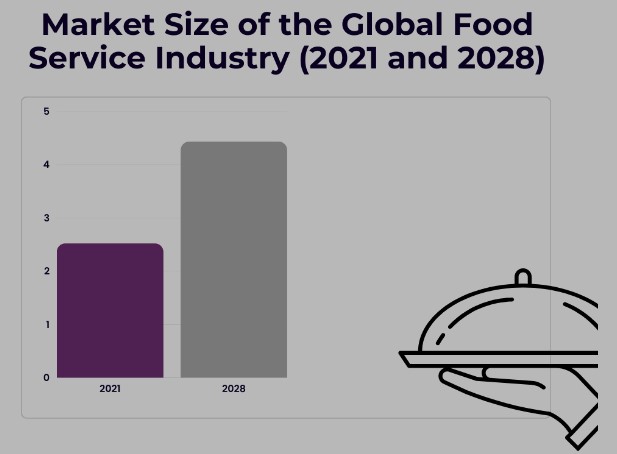Improving Work-Life Balance: How Restaurant Scheduling Software Benefits Employees
5 Mins Read
Published on: 09 November 2023
Last Updated on: 14 November 2024

toc impalement
With diners going out to eat multiple times a week, a whopping 45% of them to be precise, it’s evident that the restaurant industry is bustling.
Efficient scheduling is now paramount, particularly considering that restaurants aim for an average labor cost target of 24.38%. However, it’s not just about the numbers.
The core of a restaurant is its employees. Let’s explore how scheduling software can greatly enhance their job satisfaction.
How Restaurant Scheduling Software Enhances Employee Satisfaction
The restaurant industry faces a staggering turnover rate—75%. With 51% of operators naming staffing as a top challenge and 35% pointing to training, it’s clear that employee satisfaction is a pressing concern. But how does this all tie into work-life balance? The answer lies in the hours spent – or rather saved – in scheduling.
The Direct Impact On Employee Work-Life Balance
Imagine spending only 0.63% of your week on schedule, compared to the previous 6.61%. That’s the difference a restaurant scheduling software can make. With over 35% of employees feeling they don’t receive enough positive recognition at work, efficient scheduling can be a step toward addressing this concern.
Schedulers spend an average of only 0.63% of their week creating employee schedules with software, as opposed to the previous 6.61% without it. This means they get back nearly 6 hours in their work week, allowing them to focus on more strategic tasks. Employees also benefit from better work-life balance.
With software, schedules are done more fairly and quickly, giving staff adequate notice of assigned shifts. Employees feel appreciated and recognized when schedules cater to their preferences and availability. Satisfied workers are more engaged and committed to the restaurant.
Streamlined scheduling also gives managers time to implement employee motivation programs, provide mentoring and growth opportunities, and engage with staff more. This builds morale and reduces turnover. It creates a positive work environment where employees feel valued.
The Broader Benefits For The Restaurant

In an industry where 95% of restaurateurs agree that technology improves business efficiency, it’s no surprise that scheduling software is gaining traction. Moreover, 73% of diners believe that such technology enhances their guest experience, with 61% specifically pointing to server handheld tablets.
Specifically, restaurants see these operational and financial benefits from using scheduling software:
- Increased sales and revenue through optimized labor costs and scheduling that meets sales trends. Managers can precisely schedule just the needed staff for predicted traffic.
- Lower labor costs with better oversight into overtime hours, absenteeism patterns, and adherence to budgets. Scheduling is optimized to control costs.
- Improved customer satisfaction thanks to adequate staffing and engagement during peak times. Scheduling matches service capacity to guest trends.
- Enhanced efficiency allowing managers to save time, spend less effort on admin work, and focus on big-picture strategy.
- Higher retention as satisfied employees remain committed to the restaurant thanks to accommodating schedules. Lower turnover saves on hiring and training costs.
- Increased agility to adapt quickly to changing business needs, new initiatives, and disruptions through flexible scheduling.
In an era of thin profit margins, restaurants must leverage technology like smart scheduling to operate efficiently and gain a competitive advantage. The benefits impact nearly every area of the business.
The Increasing Importance Of Efficient Restaurant Scheduling
Empowering Employees With Mobile Access
The ubiquity of smart mobile devices and their integration with scheduling software provides flexibility and convenience. Employees can easily request shift changes, engage in group chats to coordinate shift swaps, and get real-time updates about schedule adjustments – all on-the-go. This allows for efficient resolution of scheduling issues remotely without having to come into the restaurant physically.
Autonomy And Control: Employees Take Charge
Allowing employees to have greater control over their schedules through self-scheduling features in software promotes engagement. Employees can select shifts that fit their lifestyle needs, increasing satisfaction. At the same time, automated alerts keep both managers and staff notified of any schedule updates, enhancing transparency.
Oversight Across Multiple Locations
For restaurant groups managing different locations, obtaining a bird’s-eye view of staffing needs across all units can be challenging. Scheduling software enables centralized planning where real-time data and insights can be used to optimize labor allocation across the business. Last-minute changes at one restaurant can be smoothly addressed by moving workers from another location.
Transparency And Trust In The Workplace
Miscommunication and assumptions often plague manual scheduling processes eroding workplace trust. Scheduling software creates transparency through staff access, accountability tracking, and documented approvals. Everyone is on the same page, preventing perceptions of unfairness or favoritism. This fosters a positive company culture.
Flexibility And Mobility: Scheduling On-The-Go
With user-friendly mobile access, managers can efficiently manage schedules on the go. Sudden changes like shift swaps or call-outs can be addressed even when offsite instead of having to wait until being back at the restaurant office computer. This gives managers enhanced flexibility and mobility to respond to needs as they arise in real time.
The Broader Benefits Of Scheduling Software
- Improved control over unpredictable labor costs through data-driven scheduling.
- Enhanced mobility and flexibility for both managers and employees.
- Strengthened transparency and trust between staff and management.
- Optimized scheduling that reduces conflicts and call-outs.
Embracing The Present: The Role Of Technology In Modern Restaurants
In an industry with narrow profit margins, integrating technologies such as scheduling software to run cost-effective and efficient operations is imperative. With benefits to both staff and management, this technology is a win-win that helps restaurants succeed in the modern landscape.
Efficient scheduling, enabled by software, profoundly impacts a restaurant’s bottom line and its ability to deliver quality customer and employee experiences. This is the future of the restaurant industry.Frequently Asked Questions (FAQs)
How does scheduling software prevent conflicts and misunderstandings among staff?
Restaurant scheduling software centralizes all schedule information and makes it accessible to both managers and employees from any device. This transparency ensures everyone is on the same page, preventing issues like shift theft or confusion over assigned hours. Managers can also easily track shift trades, time-off requests, and availability.
Can employees access the scheduling software from any device, and is it secure?
Yes, most scheduling software offers web and mobile apps that allow employees to view schedules, request time off, pick up shifts, and communicate with managers on the go securely. Apps have built-in authentication and encryption measures to keep data safe.
How does scheduling software adapt to sudden changes in restaurant operations?
Quality scheduling software is designed to be flexible and scalable. Managers can quickly adjust schedules based on projected sales data, last-minute call-outs, or unexpected events. The software automatically sends notifications so staff are aware of changes in real-time. Operational disruptions can be smoothly resolved.
Read Also:


















Comments Are Closed For This Article